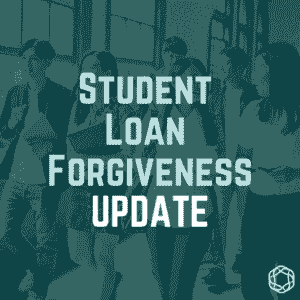With the end of the national emergency, some are worried about the future of student loan repayments ]and student loan forgiveness updates.

How will the end of the national emergencies affect Americans with federal student loans?
The White House announced that it will end both the national and public health emergencies that were declared in response to Covid on May 11, according to CNBC. The declarations, declared first by former President Donald Trump in January 2020 (public health emergency) and March 2020 (national emergency), led to changes in policies affecting average Americans’ lives such as free COVID tests, treatments, and vaccines.
One of the most significant changes was the pause on federal student loan payments and interest accrual, which was implemented by the Secretary of Education, Betsy DeVos, in response to the emergency declarations. The date for restarting the payments is yet to be determined and will either be 60 days after the resolution of a Supreme Court case linked to Biden’s one-time student loan forgiveness plan or 60 days after June 30, 2023, whichever comes first.
What it signifies for the one-time debt cancellation initiative
The U.S. Department of Education has stated that the end of the national health emergency will not affect the timeline for restarting federal student loan payments. Currently, the date depends on the outcome of a Supreme Court case tied to President Biden’s one-time student loan forgiveness plan.
READ ALSO: Will Joe Biden’s Student Loan Reforms Give Borrowers the Fresh Start They Deserve?
The plan, which could provide eligible borrowers with $10,000 to $20,000 in debt relief, is based on the 2003 HEROES Act, which allows the secretary of education to make changes to the federal student loan program during national emergencies if borrowers have suffered direct economic hardship.
Some are concerned that the end of the national emergency will complicate the legal case, Nebraska v. Biden, which uses the COVID-19 national emergency as the rationale for the debt relief plan. The outcome of the case, which begins oral arguments on Feb. 28, will determine whether the end of the national emergency will affect the student loan forgiveness plan. If the court rules in favor of the Biden administration, the end of the emergency should not impact the outcome. However, if the court rules against the administration, the point will be irrelevant.
In conclusion, the end of the COVID-19 national emergency has created uncertainty around the future of student loan repayments and student loan forgiveness. It remains to be seen how the outcome of Nebraska v. Biden will impact these policies, but the U.S. Department of Education has stated that the end of the emergency will not change the timeline for restarting federal student loan payments. Regardless of the outcome, it is important for students with federal loans to stay informed and understand the options available to them.
READ ALSO: House Republicans Propose Bold Changes to Student Loans, Biden’s Debt Cancellation





